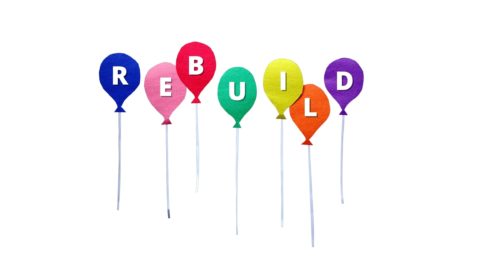Let’s cover strategies to prevent your child from lying.
“Lying” is an area of parenting that presents unique challenges for even the most experienced parents. It is not simply about a challenging/upsetting behavior. From the adult perspective, when children lie they are violating standards of honor and trust. Both of these pain points can have a profound effect on the relationships between adults and children. For many kids, lying serves a very specific purpose. Often, this is more about self-protection and avoiding shame and consequences for something they have done.
In order to effectively understand the potential effects of lying, every parent needs to first understand that “lying” is part of the journey that often occurs between parents and children. Reviewing this journey enables us to focus effectively on how to deal with a child who lies.
Why Do Children Lie?
Quite simply, lying is often the easiest solution when a child:
- Feels “cornered”
- Needs to establish a sense of power and control over a situation
- Does something to violate the rights of another person (i.e. taking something that belongs to someone else)
When he is confronted, the solution often includes creating a story that helps the child feel and look like he is “innocent.” The child thinks that this tactic allows him to avoid the “consequences” for his behavior, which might include parental anger/disappointment, loss of privileges, and/or experiencing a feeling of personal rejection.
If the lie is successful, the child also learns that this technique can be worth repeating. This is much easier to live with than “honesty.”
Young children do not yet have the experience or brain development to plan and evaluate the effects of the lies they tell. They do not stop to calculate how they will personally benefit. They simply come up with a “lie” in order to satisfy an immediate need. Simply stated, children act in certain ways to achieve some sense of balance and control in their lives.
If a young child takes something that belongs to someone else, it is simply because he really wants it! If he breaks something and lies about it, he is simply avoiding outcomes that he has experienced or witnessed in the past… or even that he imagines might happen.
Bottom line: “lying” is a quick solution to a problem in the eyes of a young child. Solving the problem beforehand is the best method to prevent your child from lying.
Your Role as a Parent to Prevent Your Child from Lying
As children mature and experience successful outcomes for their lies they learn that lying is a great way to avoid bigger problems with their parents or caretakers or even other children. In fact, they learn that they can continue getting what they want by doing whatever they need in order to get it and still be protected by their lies.
How do episodes of lying usually conclude? The answer to this question is dependent upon the adult response.
There are several things that an adult should keep in mind when dealing with lies told by young children.
1. Help the child identify his unmet needs.
One major goal adults should keep in mind is helping the child identify his frustration or unmet need. Put yourself in the child’s shoes. Empathize with the child’s feelings. Simultaneously, let the child know that his most effective response when caught lying is to tell the truth. Join the child in developing a plan for earning rewards for telling the truth. This applies even if he has to deal with outcomes that result from the lie.
2. Focus on the child being able to interact and handle the limits of boundaries throughout his life.
The adult should be focused on teaching the child to interact appropriately. Children need to learn how to handle the limits (and sometimes the resulting disappointments) that accompany what feels like unfair boundaries we must all follow during the course of our lives. If a child wants something that does not belong to him, the most obvious solution is to take just take it! The challenging lesson he must learn is that he cannot just take something because he wants it.
3. Parent-child communication is extremely important.
The response of the adult must invite #2 above to occur effectively by not intimidating or criticizing the child and not venting anger or punishment on the child. This type of response polarizes the situation, often frightens the child, and stimulates the child to do whatever is necessary in order to avoid a severe response from the adult that feels physically threatening and/or emotionally frightening.
The adult should instead show approval to the child who is able to finally tell the truth and calmly let him know that “lying” results in certain outcomes.Based on what the child has lied about, the adult should inform the child of the (reasonable) outcomes for his lying.
Remember that the ultimate goal is to support the child to tell the truth rather than learn that the best way to avoid unpleasant consequences is to keep lying.
4. Reject the behavior, not the child.
In all cases the ultimate goal is clear and positive: parent-child communication that clearly lets the child know that you reject the behavior, not the child!
Lying from Older Children and Teens
For older children and teens, the process of lying can be part of an established pattern that the child has been repeating for some time. Often the adult is unaware or dismissive of such episodes. However, the child/youth has gradually learned that the most effective way to get what he wants and also survive uncomfortable adult responses is to lie. This is especially true when avoiding reactions of anger and uncomfortable consequences.
Remember, there are several additional needs that could potentially lead to lying, especially in older children:
- The child is experimenting with lying to see if it works well for him—can he lie successfully and get away with it?
- Your child is telling “whopper” stories to get attention.
- The child uses lies to avoid responsibilities (i.e. “I’m not feeling well enough to take out the garbage.”)
Prevent Your Children from Lying Regardless of Age
In all of these cases the most effective and proactive ways to minimize and even eliminate lying include:
1. Be very clear about the expectations.
Be clear with the child/youth regarding expectations in advance. For example, let the child know that when asked to do something, he should just say, “Okay.” If he resists, perhaps the adult can help him divide the task into smaller steps.
Consider checking out the Pillars for Success website. Once there, you can download a “point sheet” to guide you in developing an organized system. The end result is defining and rewarding positive behavior.
2. Be very clear regarding the outcomes of behavior.
In advance, be very clear with the child/youth regarding outcomes for positive behavior choices and outcomes for negative behavior choices (including lying) at the first signs of both types of behavior.
Make sure expectations are fair and match the child’s ability to comply.
3. Remain calm.
In all cases the adult is to remain calm as he reviews what has occurred and informs the child of the outcomes for his choices, which should be no surprise to the child if #2 above is followed.
Conclude the conversation by calmly letting the child know that the choice is his. He can either choose to behave in a way that results in celebration and rewards or he can choose to behave in a way that results in outcomes that are uncomfortable.
Our congratulations to all of you who are taking the time to consider this article on how to prevent your child from lying! Parenthood can be an uplifting and satisfying experience. The pillars of parenting can be reinforced and supported by the Pillars for Success. Learn more by exploring the website.













